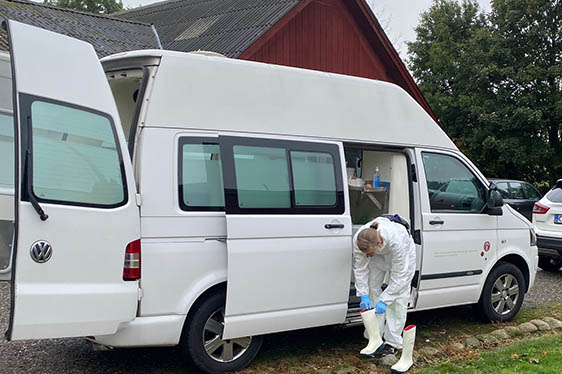Society

Sep 12 2020 - A mink farm in Eastern Denmark is subject to research that will provide unique knowledge in the fight against coronavirus. The 1.300 minks on this farm were infected with Covid-19, quite likely back in April sometime, but by now the animal population has achieved herd immunity and developed Covid-19 antibodies.
This provides researchers with a unique opportunity to study antibody levels in an entire population. Amongst the answers, this research may provide the efficiency of a possible Covid-19 vaccine.
"Antibody levels are anticipated to decrease over time, but we don’t know how fast or homogenous it will happen. We can learn a lot from mink farm samples. To begin with, we are very interested in knowing for how long a good antibody response can be observed in mink. Antibody levels have an effect on how well a possible vaccine will work, and how well you are protected against possible new infection," Anne Sofie Hammer, Department of Veterinary and Animal Sciences, University of Copenhagen, said.
The research farm is relatively small in terms of pelt production, but for research purposes, it is a large population. In addition, the minks are roughly the same age and housed under the same conditions, and this makes up for a clinical trial setting not easily replicated elsewhere, if at all.
"In order to become better at handling COVID-19, it is important to provide as much knowledge as possible about how the infection develops in both animals and humans. This is the basis for constantly optimising the prevention and treatment of the infectious disease, and this is a unique opportunity," said Anne Sofie Hammer.
In the coming months results from research conducted on a number of Danish mink farms will be published, and become a part of the global fight against Covid-19. Also, Dutch researchers have published papers from on-farm research that is valuable in this regard.
"The minks appear to develop Covid-19 disease in a manner similar to the pattern seen in humans. Most animals stay healthy following infection, but some animals, and perhaps particularly animals that have a less well-developed immune system, can develop severe pneumonia," Anne Sofie Hammer said.